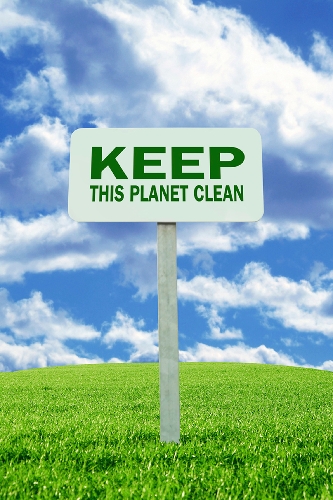Being green doesn’t mean you can’t be clean

There are many reasons why the art and practice of green living make sense, from the biggest picture to the smallest detail. Take household cleaning products, for example. These small details have a huge impact on our homes, our health and our planet. Slick television commercials advertise the latest “new and improved” products that “kill germs on contact” while leaving a “clean, fresh scent.” Not many of us read the list of ingredients (if they exist) and of those who do, even fewer understand what they mean.
However, the results of our unrestrained embrace of modern chemistry are everywhere. They can even be observed in the bloodstream of newborns, where laboratory tests on samples collected by the American Red Cross from randomly selected babies showed an average contamination of more than 200 industrial chemicals and pollutants. The list includes many chemicals found in cleaning and beauty products, plus other sources like pesticides, plasticizers, flame retardants and stain repellents.
With such a witch’s brew circulating in our bodies, is it any wonder that the incidence of serious diseases is epidemic or that our health care system is overwhelmed? It’s often impossible to draw straight-line conclusions between specific diseases and their cause, but is that really necessary to understand the potential danger and the need for preventative action? Of course not.
The first step in greening your cleaning is to minimize exposure. Avoid products that contain strong, hazardous chemicals like chlorine and ammonia, which are found in many cleaning products. Spot removers often contain perchloroethylene or triclorohethylene, both of which are carcinogens and toxic to the nervous system. “Germ-fighting” antimicrobial soaps and detergents commonly use triclocarban or triclosan, which can cause allergies, reproductive problems, skin irritations and thyroid hormone disruptions. Everything from drain and oven cleaners to fabric softeners and air fresheners should be considered potential sources of unhealthy chemicals.
Remember that just because something smells good to you does not mean it is healthy. Odor manufacturing is a huge industry that also relies on a long list of chemical additives. Here are some ideas for common household cleaning tasks that get the job done without doing you in at the same time.
Castile soap: Traditional soap contains rendered animal fat and lye, while modern detergents, including many solid and liquid bath soaps, are petroleum-based and include an assortment of toxic ingredients. Castile soap is gentle, effective and made from vegetable oils. Dr. Bronner’s liquid castile soap is certified organic and fair trade, made from food-grade ingredients and is a family-owned business that is very involved in social causes. It is very concentrated and should be diluted for most uses.
Vinegar: Distilled white vinegar is really a clear liquid that is very economical, nontoxic and environmentally friendly. It is a versatile and effective cleaning agent, killing most mold, bacteria and germs. It can help soften clothes in the laundry (add a cup with half water to the rinse cycle) or be used for cleaning floors, bathrooms and appliances. Avoid using vinegar on stone products though.
Baking soda: Sodium bicarbonate, better known as baking soda, makes a great cleaning agent, deodorizer and is also useful as a fire extinguisher. Put some in a shaker bottle and use it to scrub sinks, tubs, toilets or any other area that can be thoroughly rinsed.
Hydrogen peroxide: Hydrogen peroxide is effective against bacteria, fungus, mold and mildew. It cleans, disinfects and can remove stains, while also keeping your scrubbing pads, sponges and mops fresh as well. It is nontoxic, inexpensive and earth-friendly.
These are just a few of many natural, low-cost products that can keep your home clean, fresh and much healthier for you and your family. With a bit of research, you’ll find much more. We all benefit from the reduction of toxins entering our water supply and atmosphere. Thanks for considering ways to green your clean, turning small details into big change.
Steve Rypka is a green living consultant and president of GreenDream Enterprises, a company committed to helping people live lighter on the planet. For more information and links to additional resources relating to this column, or to reach Steve, please visit www.greendream.biz.